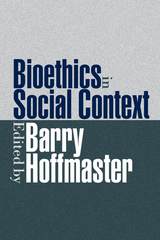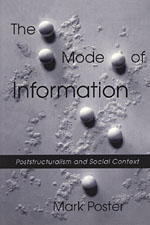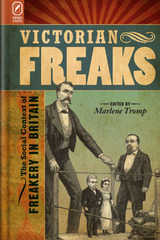
The original essays in this volume use qualitative research methods to expose the multiple contexts within which the problems of bioethics arise, are defined and debated, and ultimately resolved. In a provocative concluding essay, one contributor asks his fellow ethnographers to reflect on the ethical problems of ethnography.


The difference, Mark Poster argues, is the profound effect electronic mediation exerts on the very way we perceive ourselves and reality. To help decode the linguistic dimensions of our multiple forms of social interaction, he plays upon Marx's theory of the mode of production—the shift to late capitalism has a parallel in the shift from the mode of production to that of information.
Enlisting poststructuralist theory, he links four modes of communication with four poststructuralists: TV ads with Baudrillard, data bases with Foucault, electronic writing with Derrida, and computer science with Lyotard. Mode of Information points the way to a poststructuralist strategy for writing history, a framework well suited to unearthing structures of domination and the means to their disruption.
"An informed, insightful, provocative account of phenomena that have transformed virtually every area of public and private life on our time."—Robert Anchor, American Historical Review
"The importance of Poster's book is unmistakable for he skillfully negotiates between and juxtaposes two wide theoretical domains—electronically mediated communications and poststructuralist theory—about which much has been written, but hardly with the acumen that he brings to bear in a long-awaited critical rapprochement."—Charles J. Stivale, Criticism

Snake charmers, bards, acrobats, magicians, trainers of performing animals, and other nomadic artisans and entertainers have been a colorful and enduring element in societies throughout the world. Their flexible social system, based on highly specialized individual skills and spatial mobility, contrasts sharply with the more rigid social system of sedentary peasants and traditional urban dwellers. Joseph Berland brings into focus the ethnographic and psychological differences between nomadic and sedentary groups by examining how the experiences of South Asian gypsies and their urban counterparts contribute to basic perceptual habits and skills.
No Five Fingers Are Alike, based on three years of participant research among rural Pakistani groups, provides the first detailed description in print of Asian gypsies. By applying methods of anthropological observation as well as psychological experimentation, Berland develops a theory about the relationship between social experience and mental growth. He suggests that there are certain social conditions under which mental growth can be accelerated. His work promises to stand as an important contribution to the cross-cultural literature on cognitive development.

Alfred V. Kidder’s excavations at Pecos Pueblo in New Mexico between 1914 and 1929 set a new standard for archaeological fieldwork and interpretation. Among his other innovations, Kidder recognized that skeletal remains were a valuable source of information, and today the Pecos sample is used in comparative studies of fossil hominins and recent populations alike.
In the 1990s, while documenting this historic collection in accordance with the Native American Graves Protection and Repatriation Act before the remains were returned to the Pueblo of Jemez and reinterred at Pecos Pueblo, Michèle E. Morgan and colleagues undertook a painstaking review of the field data to create a vastly improved database. The Peabody Museum, where the remains had been housed since the 1920s, also invited a team of experts to collaboratively study some of the materials.
In Pecos Pueblo Revisited, these scholars review some of the most significant findings from Pecos Pueblo in the context of current Southwestern archaeological and osteological perspectives and provide new interpretations of the behavior and biology of the inhabitants of the pueblo. The volume also presents improved data sets in extensive appendices that make the primary data available for future analysis. The volume answers many existing questions about the population of Pecos and other Rio Grande sites and will stimulate future analysis of this important collection.

While “freaks” have captivated our imagination since well before the nineteenth century, the Victorians flocked to shows featuring dancing dwarves, bearded ladies, “missing links,” and six-legged sheep. Indeed, this period has been described by Rosemarie Garland-Thomson as the epoch of “consolidation” for freakery: an era of social change, enormously popular freak shows, and taxonomic frenzy. Victorian Freaks: The Social Context of Freakery in Britain, edited by Marlene Tromp, turns to that rich nexus, examining the struggle over definitions of “freakery” and the unstable and sometimes conflicting ways in which freakery was understood and deployed. As the first study centralizing British culture, this collection discusses figures as varied as Joseph Merrick, “The Elephant Man”; Daniel Lambert, “King of the Fat Men”; Julia Pastrana, “The Bear Woman”; and Laloo “The Marvellous Indian Boy” and his embedded, parasitic twin. The Victorian Freaks contributors examine Victorian culture through the lens of freakery, reading the production of the freak against the landscape of capitalist consumption, the medical community, and the politics of empire, sexuality, and art. Collectively, these essays ask how freakery engaged with notions of normalcy and with its Victorian cultural context.
READERS
Browse our collection.
PUBLISHERS
See BiblioVault's publisher services.
STUDENT SERVICES
Files for college accessibility offices.
UChicago Accessibility Resources
home | accessibility | search | about | contact us
BiblioVault ® 2001 - 2024
The University of Chicago Press









